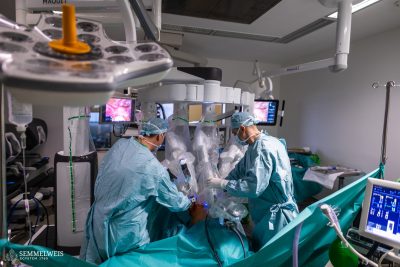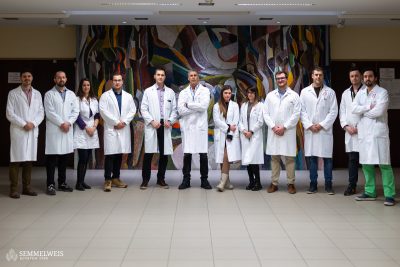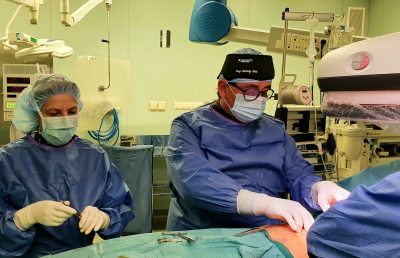The third “Triangle” Scientific Symposium of the Japan-Hungary-Poland Surgical Society, which was also the eighth Japanese-Hungarian scientific meeting, was held at the Stefánia Palace in Budapest. The event, which was part of the Semmelweis Memorial Year Programme Series, was given the title “Clean hands save lives”.
At the opening of the event, the symposium’s host, Dr. József Sándor, university professor and co-founder of the society, briefly presented the programme of the event and the life of Ignác Semmelweis. The organizers named the event in honour of Semmelweis, and several presentations were given on the topic of hospital and surgical hygiene. At the opening ceremony, Sato Kuni, Ambassador of Japan to Hungary, as well as Jerzy Snopek, Ambassador of Poland, greeted the participants. Rector Ágoston Szél’s words were rendered by Dr. Domokos Csukás, assistant lecturer at the Department of Surgical Research and Techniques. The memorial years associated with Ignác Semmelweis gave a certain framework to his second rectorship cycle, wrote Dr. Ágoston Szél, recalling that in 2015, at the beginning of his mandate, the University commemorated the 150th anniversary of Semmelweis’s death. The Rector, outgoing at the end of June, expressed his pleasure that the Japan-Hungary-Poland Surgical Society, in addition to their outstanding professional knowledge, put great emphasis on the education of the young generation. On behalf of the Japanese delegation, Dr. Kitajima Masaki, in the name of the Polish delegation, Dr. Grzegorz Wallner, and on behalf of the Hungarian Surgical Society, Dr. László Damjanovich addressed the participants.
In the presentation and poster sections of the two-day programme, more than 100 lectures introduced the characteristics of military surgeon’s work, the latest methods of minimally invasive procedures and the actualities related to modern surgical care, operational procedures and the importance of hand disinfection.
During the comprehensive scientific meeting on a wide range of surgical areas, Japanese and Polish lecturers talked about how they became familiar with Semmelweis’s teachings in their countries and how the theory and practice of asepsis became accepted, added Dr. József Sándor. He emphasized that the symposium was a major international event of the memorial year.
The speeches of the opening ceremony can be viewed in full in the following video:
Eszter Keresztes
Translation: Diána Módos


